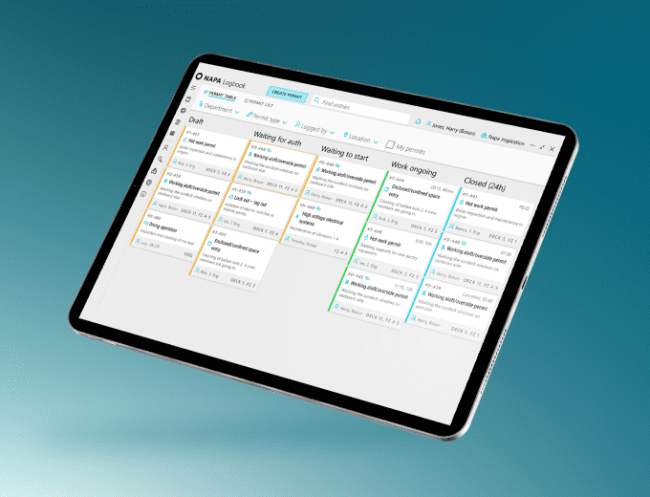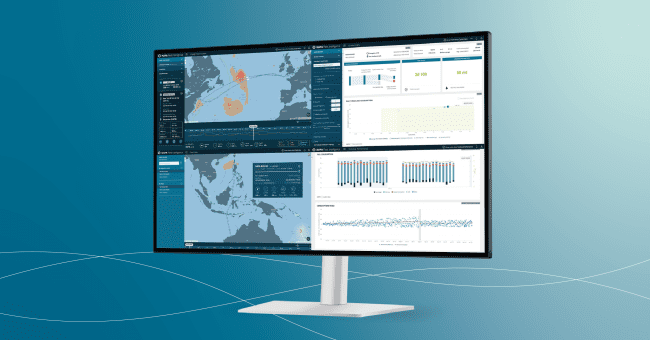MEPC 83: Digital Tools Can Ease the Rising Tide of Compliance Data Demands
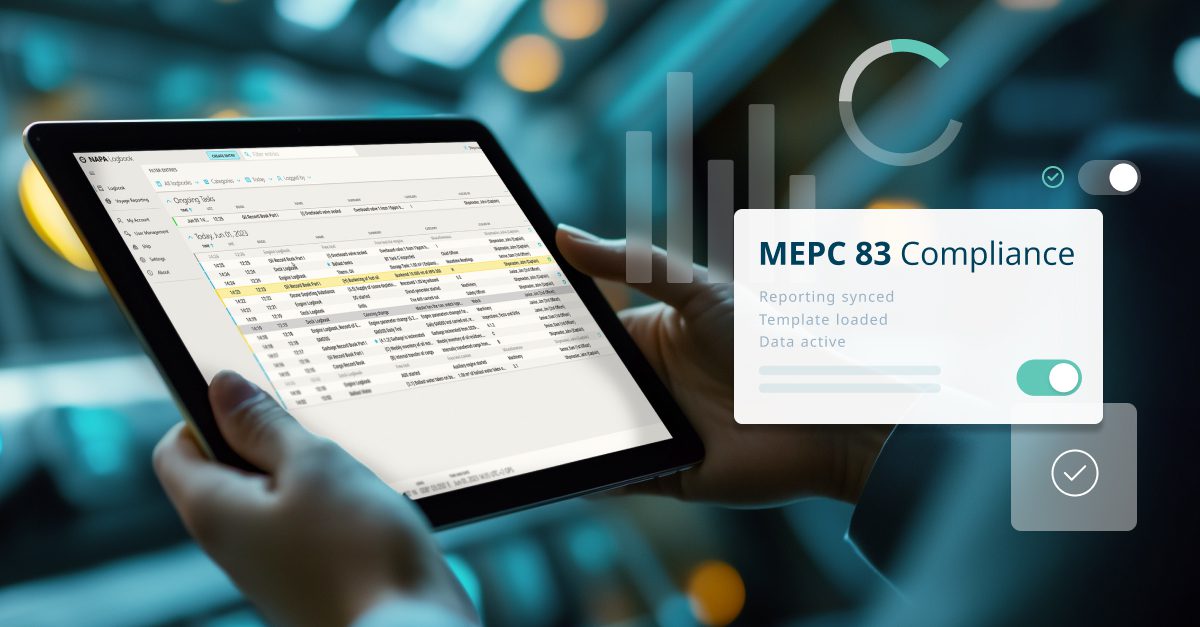
MEPC 83 is bringing more than just a global carbon price—it introduces a sweeping wave of new data and reporting obligations. From fuel consumption to non-GHG emissions to ballast water, the volume and complexity of compliance data are growing fast, and digital tools are now essential to ease data collection, streamline documentation, and support accurate regulatory reporting both onboard and ashore.
The International Maritime Organization (IMO) has made history. After over a decade of negotiations, it has agreed on the world’s first globally binding carbon pricing system. With MEPC 83, the IMO not only reaffirmed its ambition for net-zero shipping, it also introduced binding, globally applicable carbon measures that will define how shipping navigates its decarbonization journey in the years to come.
This is a milestone, not just for climate diplomacy, but for maritime regulation. The ripple effect? A wave of increasingly complex compliance requirements, especially around data. The new rules demand more granular data collection, structured compliance documentation, and verifiable reporting. Digital tools will thus be essential in helping ship owners and operators ease the data collection process required for compliance documentation and reporting.
A Sea of New Rules—and a Flood of Data
The MEPC 83 outcomes underscore a clear path toward maritime sustainability. Key among the resolutions is the approval of mid-term greenhouse gas (GHG) reduction measures, firmly aligning the industry toward net-zero emissions. Complementing this, the Carbon Intensity Indicator (CII) framework now has agreed reduction factors through 2030, alongside the introduction of a new GHG Fuel Intensity (GFI) Standard set to fundamentally reshape how ships measure and report emissions from 2027 onwards. At its core, this means more data—significantly more of it—collected, reported, and verified annually.

Clearly, MEPC 83 is ushering in more than a carbon price. It’s delivering a sweeping set of new data and reporting obligations.
Among the most significant changes:
- Fuel Oil Consumption Data Reporting and Access: Amendments to MARPOL Annex VI Regulation 27 will increase access to the IMO Ship Fuel Oil Consumption Database (DCS). These are expected to enter into force on 1 March 2027. To meet these transparency requirements, ships will need to provide more granular fuel oil consumption data, mandatory for new ships entering service from 1 August 2025 and for existing ones from 1 January 2026.
- Ship Energy Efficiency Management Plan (SEEMP): The 2024 Guidelines were amended to clarify how and when data must be collected while a ship is “under way” and “not under way,” improving accuracy in emissions reporting.
- Carbon Capture and Storage (OCCS): A work plan for developing regulations for onboard carbon capture was approved, targeting completion by 2028. The plan includes strict requirements for data collection, traceability, and verification.
- Non-CO2 Greenhouse Gas Monitoring: New guidelines, MEPC.402(83)—were adopted for the measurement, reporting, and verification of methane (CH4) and nitrous oxide (N2O) emissions from marine diesel engines.
- Ballast Water Management: Progress continues in reviewing the Ballast Water Management Convention, including updated testing requirements and stricter reporting obligations. New approvals for ballast water treatment systems also mean more operational data must be documented and submitted for compliance.
Each of these regulatory shifts has one thing in common: they significantly raise the bar on data collection, compliance documentation, and reporting.
The Human Factor: What This Means for the Crew
While regulatory intentions are commendable, the practical implications are daunting. The maritime workforce is already under pressure. A survey by the International Seafarers Welfare and Assistance Network (ISWAN) found that 54% of seafarers report increased workloads, and 44% are experiencing more stress. The deluge of compliance documentation is a key driver. For shipowners and executives, the business impact is equally profound—missteps in compliance can mean costly penalties, reputational risk, and operational inefficiencies.
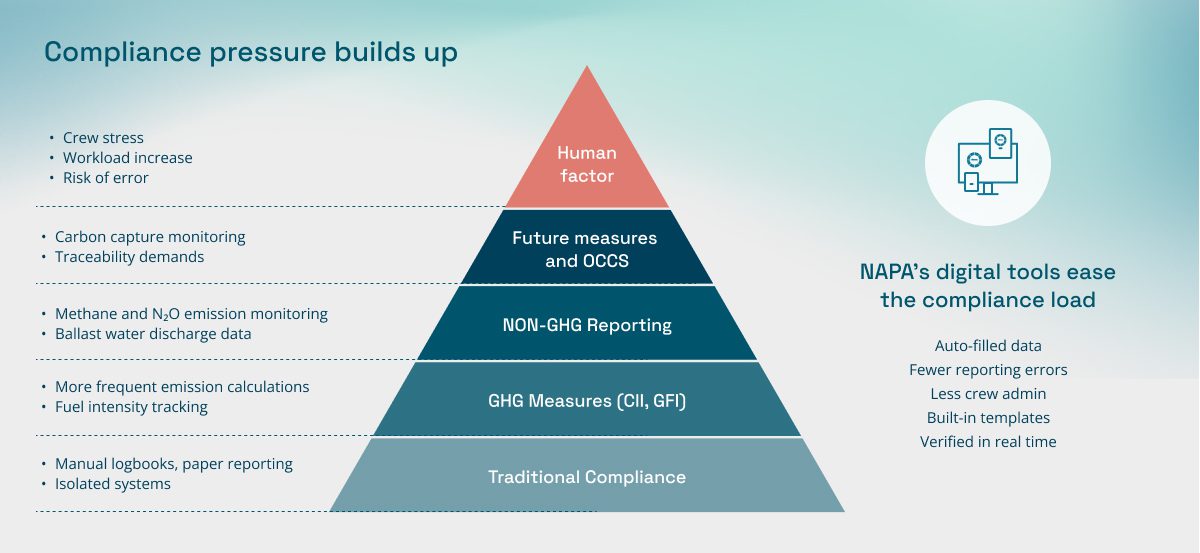
The new MEPC 83 mandates amplify these pressures exponentially, with intricate data reporting requirements on everything from GHG emissions to fuel and ballast water. As compliance becomes more data-intensive, both crews and shoreside teams are in danger of drowning in paperwork. More documentation equals more stress and more opportunities for costly errors. Executives ashore aren’t immune either: compliance oversight and risk mitigation demand more resources and divert strategic focus, ultimately impacting profitability and operational agility.
Digitalization: Steering Clear of Documentation Storms
Amidst these challenges, forward-thinking maritime operators are increasingly looking toward digitalization to alleviate compliance burdens. Leading this transformation are advanced solutions such as NAPA Logbook and the NAPA Fleet Intelligence platform, offering a streamlined and automated approach to compliance.
Take the NAPA Logbook, for instance—providing all main ship logbooks such as deck, engine, GMDSS, ballast water, MARPOL record-keeping, garbage and waste management, and much more. It offers customizable, pre-configured templates aligned precisely with regulatory guidelines, dramatically reducing manual data entry and error risks. Integrated directly with onboard sensors and systems, the logbook automatically populates fields with accurate, real-time data, substantially reducing seafarer workload.
Input validation adds another layer of reliability, catching out-of-range values before they become reportable mistakes. These features help ensure that all data collected is audit-ready and regulation-compliant.
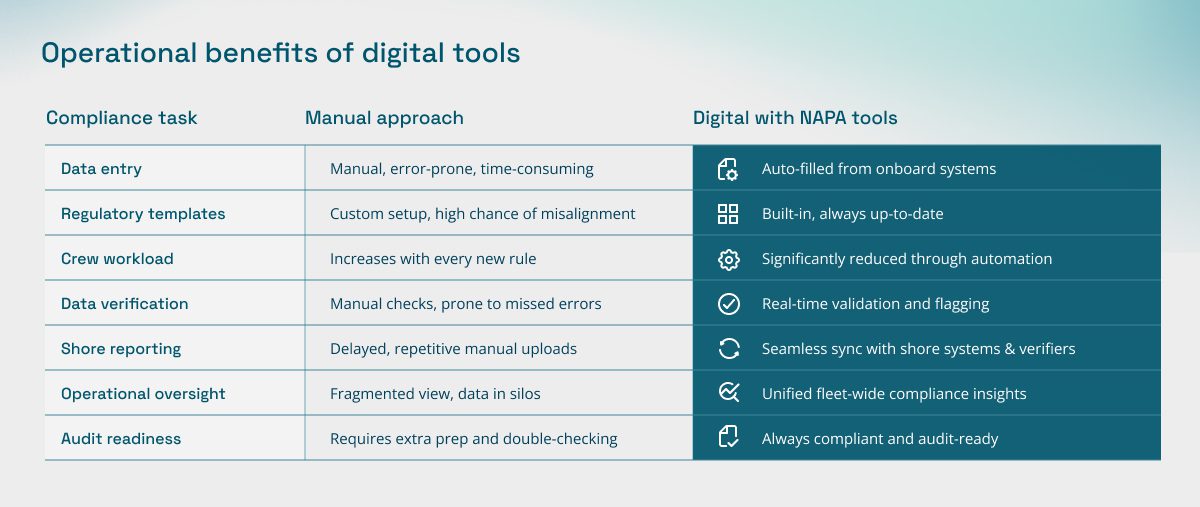
Real-Time Reporting, Strategic Insights
NAPA Logbook’s integrated platform also feeds seamlessly into broader compliance schemes such as EU-MRV, EU-ETS, and IMO-DCS. With NAPA Fleet Intelligence, data is not only logged—it’s verified, analyzed, and shared in real time with shore-based teams and verifiers like DNV Emission Connect, eliminating duplicated efforts and tedious manual processing.
The result? This creates a single source of truth that removes duplication, minimizes error, and saves countless hours in administration. But perhaps more importantly, it gives ship operators and executives the data agility they need to make strategic decisions quickly and confidently.
From Compliance Burden to Competitive Advantage
MEPC 83 signals the beginning of a new regulatory era. For shipping companies, the challenge is not just to comply, but to do so efficiently, reliably, and without sacrificing crew welfare or operational focus. Yet, the practical realities onboard ships—long hours, complex documentation, and the increasing risk of non-compliance—cannot be ignored.
The volume and complexity of data required—from fuel consumption to ballast water discharge to methane emissions—is growing, and the margin for error is shrinking. Digital tools like NAPA Logbook and NAPA Fleet Intelligence are thus essential in this new era.
Beyond easing the immediate compliance burden, these tools provide maritime executives an invaluable, centralized overview of operational and compliance data across their entire fleet. Real-time insights and analytics empower informed decision-making, offering strategic foresight previously unattainable with traditional logbooks and manual data entry methods.
By transitioning from reactive compliance handling to proactive fleet management, operators gain a substantial competitive advantage. Rather than wrestling with paperwork, executives and officers can now dedicate more time to core navigational duties, operational safety, and strategic planning.
The value proposition is clear: reduce manual effort, minimize compliance risk, and unlock strategic decision-making capacity.
NAPA Logbook can be your tool for easy reporting and compliance
To know how NAPA’s electronic logbook can help you with your regulatory reporting compliance, talk to a NAPA expert.
Talk to an expert

